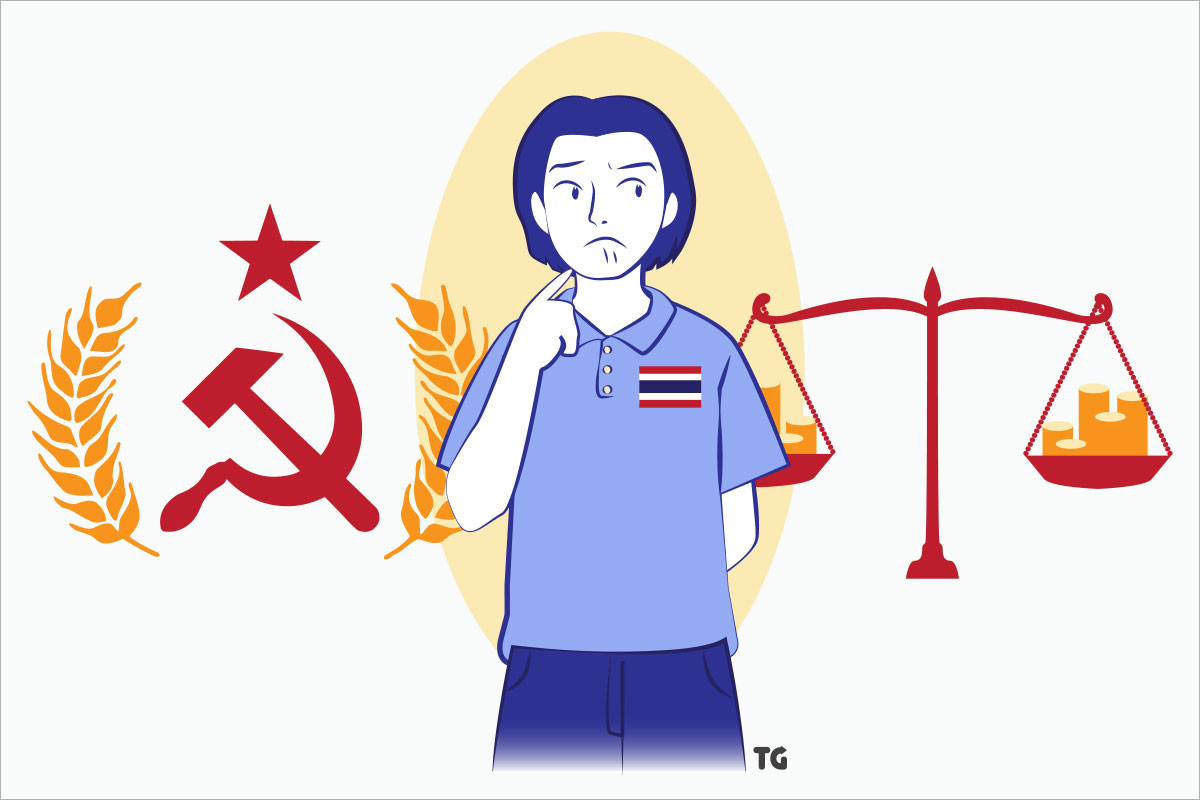No matter where you are, in Thailand or anywhere else, politics is always complicated. And one of the most complex and misunderstood terms in the political world is communism. That’s why you might wonder if Thailand is a communist country, or not.
Thailand is not a Communist Country. Its political system is a democracy under the basis of a Constitutional Monarchy. Thailand has a king as head of state and a Prime Minister as head of parliament. The existence of a monarch betrays the core value of classless equality in pure communism.
With that said, you might still be unconvinced. After all, there are numerous aspects of Thailand that you might associate with communism.
Read on to get some facts about Thailand’s politics and economy that will expel the word communist from your mind.
Is Thailand Communist?
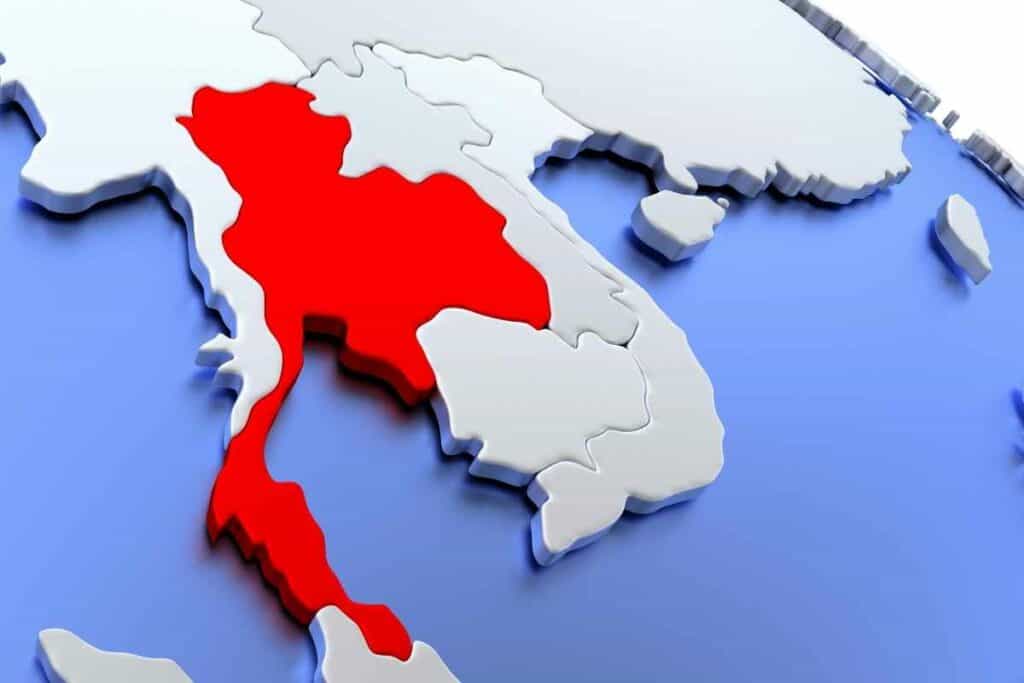
Thailand is not a communist country. But it’s understandable if you mistake it for one. After all, Thailand has gone through many militaristic coup d’etat, and its political struggle between liberal and authoritarian power still persists.
However, to understand why Thailand is not communist, you must know what communism is first.
What is Communism?
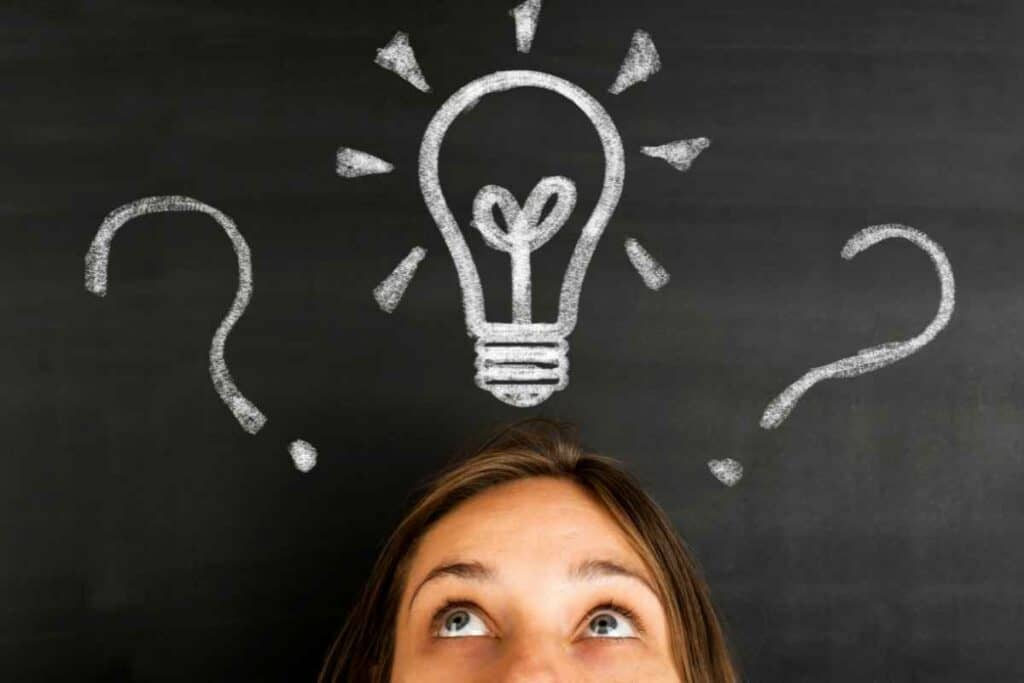
“Communism” is among the most misunderstood terms in political circles. And that’s largely thanks to the media. When you catch the word “communism” or “communist” on TV, you usually hear it as a hateful or negative expression.
The thing is, you can’t blame them. After all, communism “has been used as a tool” in slaughtering many lives throughout history. However, communism didn’t begin like that at all.
The origin of communism is tricky to pinpoint. But it saw a boom in 1848 when Karl Marx and Friedrich Engel published a pamphlet called The Communist Manifesto. In this pamphlet, Marx and Engel tried to define what communism is.
In the most basic sense, communism is a political and economic ideology emphasizing the concept of “a classless society.” Everyone is equal as a comrade and will receive the same benefits from the commune without any separation. (Source)
Some even claim that in a perfect communist world, the concept of state/nation wouldn’t even exist. (Source)
At its core, communism sounds like an ideal society you want to live in. But in practice, it is impossible to achieve. Every group needs a leader. And with such a distinguished position, the concept of equality and comradeship is broken.
You need to understand that there is no such thing as a pure communist nation. Those who claim to be one have mixed elements from other political systems. They are not even close to what Marx and Engel had visioned.
Now, you get a simple idea of what communism is. It’s time you look at Thailand’s politics.
What is Thailand’s political system?
As mentioned, Thailand’s official Political system is democracy. It’s just not the one you might be familiar with.
Democracy in Thailand is based on the framework of the Constitutional Monarchy. Meaning: the monarch in Thailand acts as a head of state under the rule of the constitution. The parliament is the governing body of the country. It is led by a prime minister who comes from an election. (Source)
If you are British, this system will sound familiar to you. Why? Because Thailand’s and England’s politics share at least 2 similar characteristics. They both have monarchs and parliamentary governments. (Source)
With that said, you might have already noticed why Thailand is not a communist country. But if you haven’t, here are 4 reasons to consider.
1. Thailand has a King
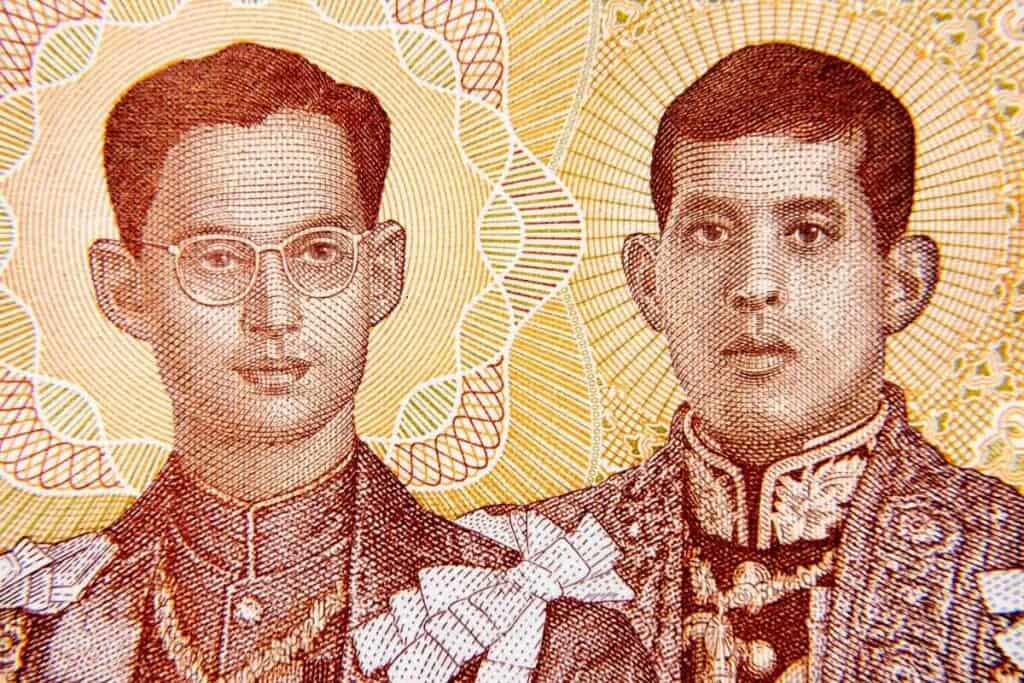
In communist countries, you can’t have a king. Why? Because communist countries should be a society without class. Kings and monarchs, however, are the very symbol of societal classes and separation. The two ideas don’t go together at all.
Thailand, like many countries, has a long history with its monarchs. The relationship between the people and the royal families has seen many ups and downs, but it still survived.
You might have heard that the Thai had once overthrown their monarch. And that is true. This happened in 1932 after the revolution led by Ka-Na-Raat (คณะราษฎร, which means people party). Their goal was to change the country from an absolute monarchy to a democracy. However, they didn’t eliminate monarchy entirely. The royal family still exists and lives with limited power. (Source)
On paper, the royal family has no power over Thai politics and governance. The king only acts as a symbol and a head of state. However, some sections in the Thai constitution limit the locals from monitoring the royal family’s actions. (Source)
The current monarch of Thailand is King Maha Vajiralongkorn or Rama X — the eldest son of the previous king, Bhumibol Adulyadej, and the 10th king of the Chakri dynasty. He became a king in 2019 after his father’s death. (Source)
With such an existence as a monarch, you cannot call Thailand a true communist country. This kingly presence betrays the very core concept of communist society.
2. Thailand’s government is formed by multiple parties
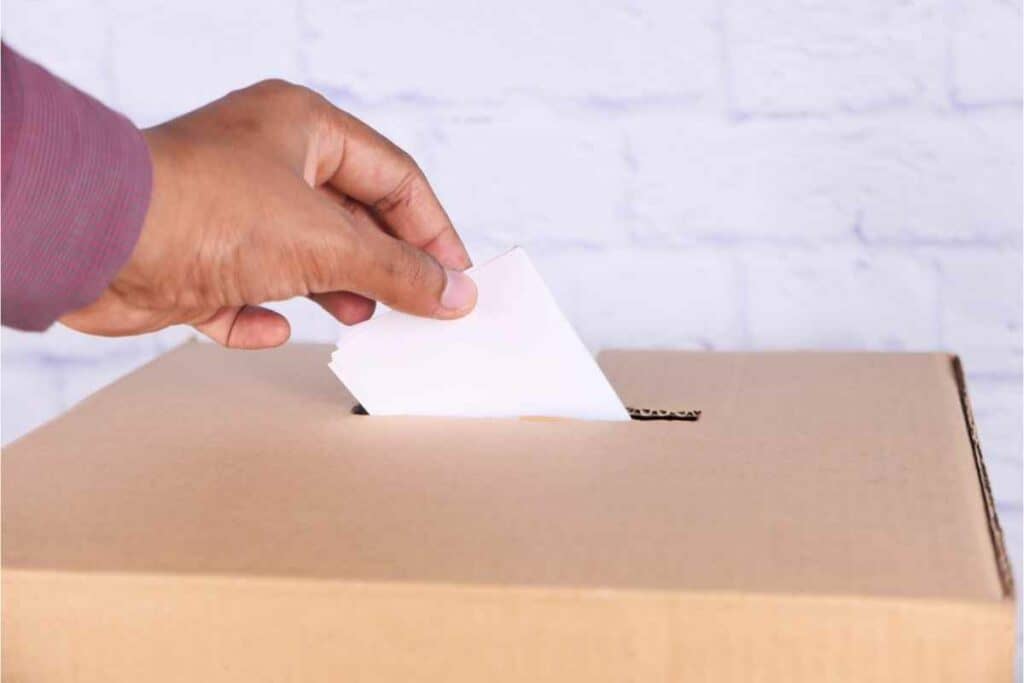
Currently, only 5 countries claim to be communist: China, North Korea, Laos, Vietnam, and Cuba. And one characteristic these countries share is the one-party government system. (Source, Source)
This system emphasizes the right of a single political party to be a de facto governing body of the nation. And Thailand is nothing like that.
Thailand’s government is formed by elected members of parliament (MPs) and senates from numerous political parties. (Source)
Once elected, these parties will decide whether they will be on the coalition or opposition side.
As of 2022, the Thai government consists of 27 political parties. 20 of which are on the coalition side and 7 on the opposition. (Source)
In total, Thailand has 88 political parties. Most are newer and smaller parties, but several bigger and older ones also survive. (Source)
The most influential parties are Palang Pracharath and Pheu Thai. The former is a newer party formed by supporters of the 2014 coup. (Source, Source)
The latter was the leading party in the government of the said coup. (Source)
The current (2022) prime minister of Thailand, Prayut Chan-O-Cha, isn’t from any party. In other words, he is an independent politician. He first came to power as the leader of the 2014 coup. In 2019, he won the election as a candidate of the Palang Pracharath party — becoming the 29th prime minister of Thailand. However, there are certain groups who question the legitimacy of his prime ministership. (Source)
All the complicacy aside, you can see that the government-forming method in Thailand is a democratic model. So, it is difficult to say that Thailand is a communist country.
3. Thailand relies on a capitalist economy
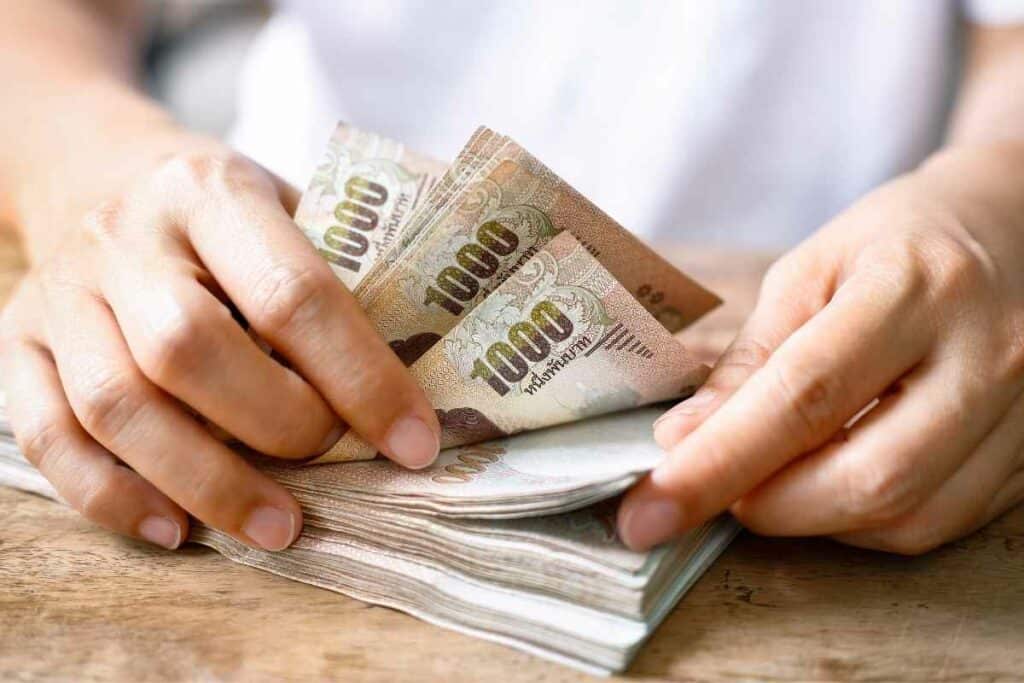
In a sense, communism is the idea that opposes capitalism. So, a country that relies heavily on capitalism like Thailand — and even China — can’t be called a true communist country. (Source)
But what is capitalism?
Capitalism is an economic system where the private sectors, or the capitalists, own the means of production and pay the laborers to produce goods for their own profit. Note that there is “ownership,” “capitalists,” and “laborers.” in capitalism.
So how does capitalism contrast with communism? The answer is simple.
In a true communist society, there shouldn’t be any separation between people. Everyone should be treated equally as comrades. The “capitalists” and “laborers” shouldn’t exist.
Not only that. Communism also condones the concept of individual “ownership.” Everything should be shared equally with everyone as a commune. Nobody gets more than anyone else. (Source)
Now, you need to look at Thailand’s economy. You don’t have to be a scholar to notice that Thailand has a ton of private companies and investors. They all compete with each other for maximum profit. They also hire labor to produce goods and provide services in response to demands. This is as capitalism as it gets. (Source)
The most famous example of a private company started in Thailand is probably Red Bull. It began in 1976 as an energy drink company called Krating Daeng (กระทิงแดง), which means red bulls. (Source)
▸ Want to learn more about Red Bull in Thailand? Check out our article: ‘3 Interesting Facts About Thailand That Will Surprise You‘
However, Thailand is not a pure capitalist either. Like many other capitalist countries, there are some businesses that the government has to intervene. In Thailand’s case, the examples are electricity and waterworks. (Source)
If the private sector owned these basic needs, their baseline price would skyrocket; only a few people can enjoy that benefit.
With the heavy influence of capitalism on the Thai economy, it is difficult to argue that Thailand is a communist country. Of course, some might say that China has adopted capitalism while maintaining its “communist” stance. However, there are still debates about whether you can call China a communist country.
4. Thailand has been on the Democratic side since the Cold War
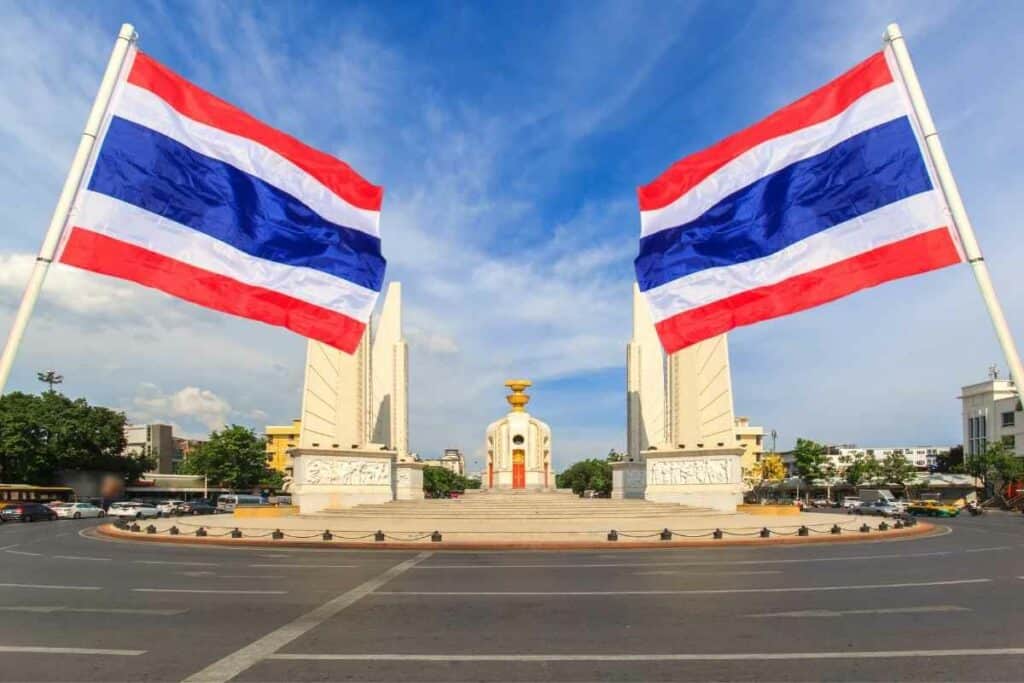
The Cold War Era was arguably the peak time of communism. But still, Thailand managed to survive those days while maintaining its position on the Democratic side.
During the Vietnam war, Thailand supported Southern Vietnam and the US forces. To help fight against the communist from North Vietnam, Thailand sent aircraft trainers, warships, and militia to the battlefield. (Source)
However, Thailand’s battle against communism didn’t occur only outside the country. It happens on a domestic level as well. However, the story might be a bit different from other countries.
In 1942, a party called the Communist Party of Thailand was formed. And as the name suggests, they promote communist practices and conduct like equality and a classless society.
Unfortunately for the party, their existence didn’t last long.
There was a coup d’etat in Thailand in 1947. The new conservative and militaristic government declared itself an enemy of communists to appeal to the US power (despite the new government being authoritarian themselves). As a result, the Communist Party of Thailand was purged.
Fun Fact: As of 2022, there have been 13 revolutions in Thailand.
After the fall of the communist party, people who agreed with the communist idea went into hiding. But not long after, they emerged again. This time, together with the liberals, as a mob against the authoritarian military government. (Source, Source)
The conflict lasted for a while and caused two horrifying events in Thai political history.
One was called the October 14th incident, and another the October 6th incident. The former happened in 1973, and the latter in 1976. Both events involved the loss of lives from liberals, communists, and the military. (Source)
After such terrifying pages in history, communist supporters have disappeared from Thailand. However, their actions during both incidents are still up for debate. Many respect them as heroes who fight against dictatorship. Others still see them as “communist bad guys.”
Communism in Thailand is unlikely to happen.
Even though some argue that Thailand is not the most democratic, you still cannot consider it a communist country.
The monarchy is still intact. As long as that is the case, communism will never bloom in Thailand. The multi-party parliamentary government and the capitalist economy also prevent This country from moving in a communist direction.
And despite the loss of lives, Thailand’s history with communism is short. It is unlikely that the locals would revive the idea once again. But no one can confirm it either. After all, politics and the future always change.
Like always, if you want to discover more about Thailand, stay guided with ThaiGuider. You might learn something you never knew about this unique country.
▸ Wondering what influence China has in Thailand? Check out our articles: ‘Is Thailand in China?‘ and ‘Does Thailand Celebrate Lunar New Year?‘
THINKING ABOUT A TRIP TO THAILAND?
I am working on a FREE Thailand Travel Guide with a FULL 7 Day Itinerary. Be the first to receive it!
Thank you for signing up.
Something went wrong.
